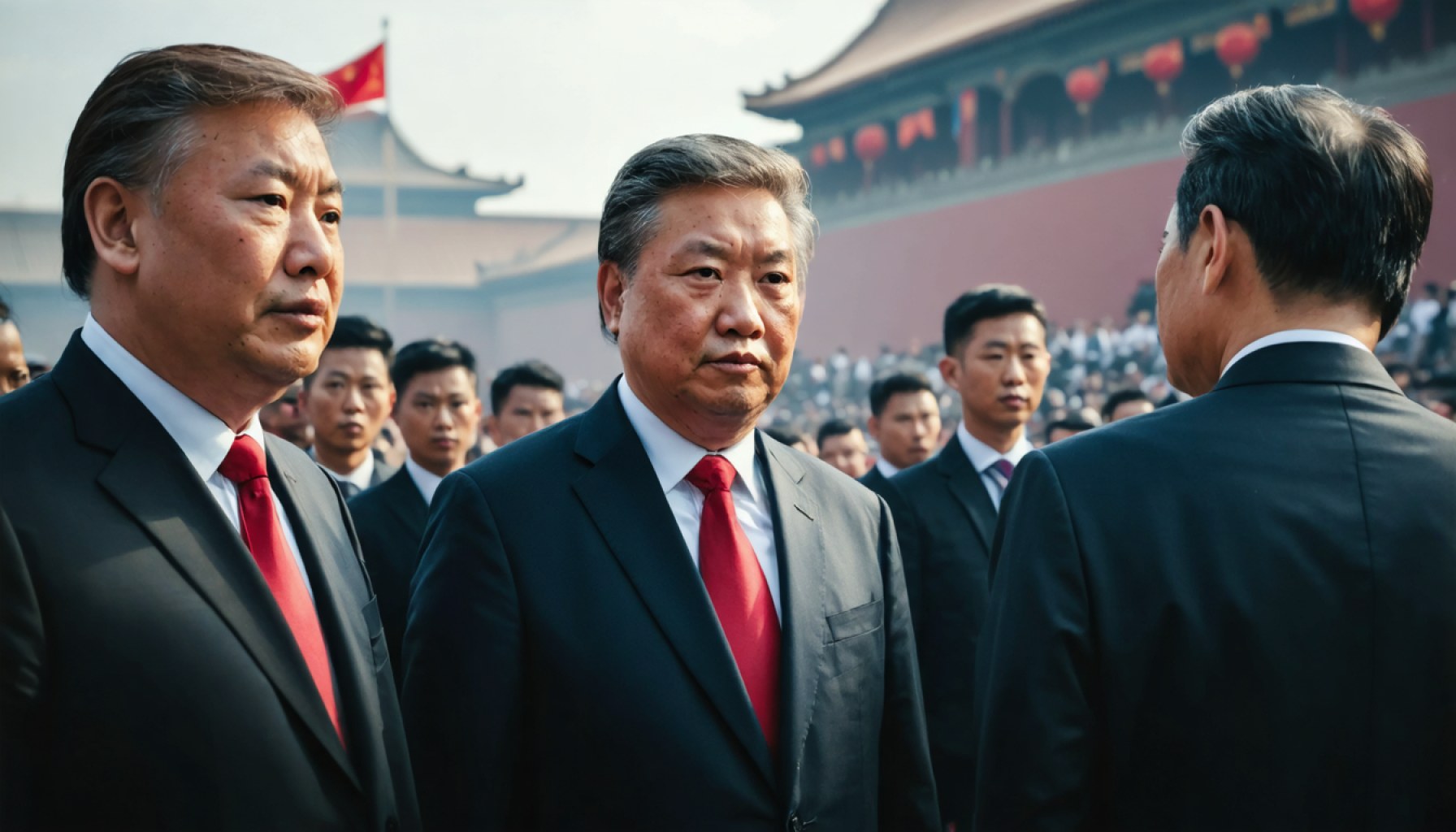- Jiang Chaoliang, former Governor of Jilin Province and Party Secretary of Hubei, faces serious allegations and investigation by China’s Central Commission for Discipline Inspection.
- The investigation highlights China’s commitment to combating corruption at the highest levels of government.
- Jiang’s career, notable for contributions to agricultural advancements, stands in contrast to the current allegations questioning his integrity.
- This situation underscores the government’s dedication to accountability, emphasizing the importance of integrity and transparency in governance.
Amid the corridors of power in China, a startling development has gripped the nation’s attention. The revered figure of Jiang Chaoliang, who once held sway as the Governor of Jilin Province and the influential Party Secretary of Hubei, now finds himself thrust into the spotlight for troubling reasons.
The Central Commission for Discipline Inspection’s recent announcement has cast a long shadow over Jiang’s illustrious career. Allegations of severe violations have triggered a rigorous investigation, questioning the integrity of a man who once sat comfortably among China’s elite. The unfolding story captures more than just one man’s struggle; it underscores a fierce commitment to rooting out corruption at the highest echelons of government.
Born in the bustling era of 1957, Jiang’s journey through China’s political landscape has been nothing short of remarkable. His leadership in shaping agricultural advancements earned him a prominent role as the Deputy Director of the Agricultural and Rural Affairs Committee. However, the current allegations suggest a stark contrast to the image of a dedicated public servant.
This investigation is more than just a personal ordeal for Jiang; it signifies a pivotal moment for the nation’s governance. As the probe delves deeper, it serves as a poignant reminder of the government’s unwavering resolve to uphold accountability, irrespective of rank or past contributions. In this dramatic narrative of power, the takeaway is clear: integrity and transparency remain paramount in the quest for a fairer society.
The Untold Story of a Political Giant: What Jiang Chaoliang’s Investigation Reveals About China’s Anti-Corruption Drive
How-To Steps & Life Hacks: Understanding China’s Anti-Corruption Mechanisms
1. Familiarize with Key Organizations: Learn about the Central Commission for Discipline Inspection (CCDI), which plays a crucial role in investigating allegations of corruption.
2. Track Allegation Processes: Understand the steps from allegation to investigation, including how investigations are initiated, conducted, and concluded.
3. Study Regulatory Frameworks: Review China’s laws on corruption and public officials, such as the Anti-Corruption Law.
Real-World Use Cases: Impact of Anti-Corruption in China
– Economic Stability: By rooting out corruption, China aims to create a more predictable and fair business environment, encouraging both domestic and foreign investment.
– Public Trust: High-profile investigations reinforce public confidence in the government’s commitment to a fair governance system.
Market Forecasts & Industry Trends: Political Purges and Their Economic Implications
– Increased Scrutiny: Expect heightened vigilance across industries, with more leaders being held accountable.
– Business Reforms: Companies may need to align more closely with government regulations to avoid penalties.
Reviews & Comparisons: Analyzing Anti-Corruption Models
– China vs. Global Practices: Compare China’s anti-corruption practices with those in countries like Singapore and Sweden, noted for their low corruption levels.
Controversies & Limitations: Challenges in Anti-Corruption Campaigns
– Political Motives: Critics argue that anti-corruption drives can be used for political purges under the guise of cleaning up governance.
– Due Process Concerns: The opaque nature of investigations often leads to questions about fairness and due process.
Insights & Predictions: Future of Anti-Corruption in China
– Continued Purge: Likely to see an ongoing focus on corruption at high levels with increased transparency in lower-level governance.
– Potential Reforms: Possible legislative changes to strengthen regulatory frameworks and enhance the transparency of investigations.
Pros & Cons Overview: Weighing the Impact of Anti-Corruption Campaigns
Pros:
– Promotes integrity and transparency.
– Reduces corruption-related economic loss.
Cons:
– Can be perceived as politically motivated.
– Risk of collateral damage to public trust if due process is seen as lacking.
Actionable Recommendations
– Stay Informed: Keep abreast of developments in anti-corruption news, especially in key sectors affected by these policies.
– Enhance Compliance: For businesses in China, strengthen internal compliance programs to align with government expectations.
– Participate in Dialogue: Engage in public discussions about the effects of these investigations on society and government trust.
For more insights into international anti-corruption practices, visit the Transparency International.
